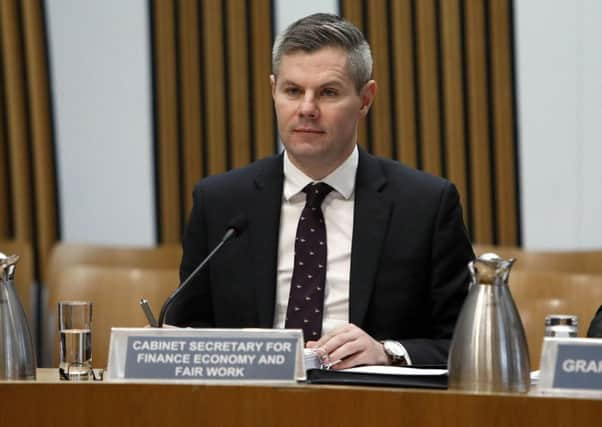Holyrood budget gets approval from Midlothian MSP


In the budget the SNP committed £729 million extra for health and care services – with spending on NHS frontline boards rising by £430m. Finance Secretary Derek Mackay also announced an £8 billion investment in Scotland’s education system, including £120 million delivered directly to head teachers. Scotland’s colleges will benefit from a £606m investment over 2019-20, while universities will receive more than £1 billion.
As part of the Scottish Government’s plan to almost double the paid-for provision of childcare to 1,140 hours from August 2020 for all 3 and 4 year olds and eligible 2 year olds, the budget also commits £500 million to support the expansion of early learning services and facilities across Scotland.
Advertisement
Hide AdAdvertisement
Hide AdThis budget will ensure Scotland remains the lowest taxed part of the UK – keeping council tax increases below the five per cent cap in England while ensuring 55 per cent of income taxpayers will pay less in Scotland than they would elsewhere in the UK.
Commenting, Mr Beattie said: “With Westminster in complete chaos, the SNP has delivered certainty and stability for Scotland’s economy with a budget that protects our cherished health service and supports our schools here in Midlothian.
“I am delighted that Holyrood has given its backing to a progressive budget that will help create a more prosperous and equal society for all.
“This budget confirms Scotland as the fairest taxed part of the UK, with most income tax payers paying less than they would elsewhere.
“Brexit remains the biggest threat to Scotland’s economy, which is why the Tories should rule out a no-deal outcome before it’s too late.
“This Brexit shambles simply reinforces the case for an independent Scotland, where we could take real control of our own future, continuing to build one of the world’s most successful economies on a firm foundation of strong and dependable public services.”